For this piece, I cribbed from my daily
journal to fashion this faintest thread of a pathway through this year’s
reading highlights…
JANUARY || Memories, Dreams, Reflections – Carl Jung
Days are short; nights are long. Maybe not more time to dream, but more time to lie in the darkness remembering dreams. Every few years, I pick up this book for which there is no obvious description. An account of the birth of psychoanalysis; an honest and often attempt to make rational sense of the uncanny; my first encounter with a life made sense by an active dream-life. It is no straightforward autobiography. I’ve read the book a half-dozen times now, and each time, I find it richer — though this is my first time revisiting it since finishing Deirdre Bair‘s magisterial biography of the Swiss doctor. The blindspots were never clearer to me, nor the depth of his understanding of life. I suspect I may pick it up again before the year is out.
FEBRUARY || Uncanny Valley: A Memoir – Anna Wiener
Wiener did what most of us do. She gave up her illusions to make a living wage. In the process, she inadvertently found her way back to the very dream that had birthed the illusion in the first place. A wonderful journey and reminder that the shortest path between two points is never a straight line. I’m grateful her journey took her through the strangeness that is Silicon Valley. At the end of her necessary account is an articulation that sums up not only the dilemmas of our age, but of storytelling as a means of making sense of these momentous times: she admits to looking for stories where she should have been seeing a system. This is the epistemological divide, and one, I worry, our literature has not caught up with. The singularity has already happened. And the world it’s creating looks nothing like Blade Runner.
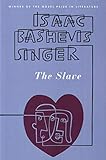
MARCH || The Slave – Isaac Bashevis Singer
We left the city, and, like almost everyone, the news — like the fear — is all-consuming. I haven’t been able to read. Except a few pages at a time of this miraculous book. It has been near the top of my TBR pile for almost ten years, suggested to me by another passionate fan of Bellow (who was Singer’s first English translator). What Singer does in this book, he suggested, provocatively, is actually to deliver on the promise that Bellow never quite does. If, for Bellow, the heart of things is on the surface of things, for Singer, that surface looks very little like the world Bellow (or any of the rest of us) tend to see. The protagonist of this burning bush of a book, Jacob, loves Wanda with a love so complete, as she does him — it conveys them both (and us as well) to a state of original grace. I keep wondering how Singer, a twentieth-century writer, is able to write about the glory of creation with such a lack of self-consciousness. Word and thing, like soul and body — are once again, one. No doubt, the events of the world are making me more sensitive to this supernal, encompassing register of the book. But all the same, it really is miraculous.

APRIL || Blood Meridian– Cormac McCarthy
Still hard to read. Still finding that reading slowly is the only workaround. The sentences of this book are so startling. Sentence after sentence after sentence. The jarring specificity of every inch of ground traversed here by horse and foot is almost impossible to account for. How is it that every plain, every new day’s light, every alley, every ridge and cloudburst — all of it so distinctly seen, precisely conveyed? More than anything, it’s this precision that accounts for the illusion of veracity — notwithstanding the persistent, estranging effect of McCarthy’s extraordinary poetry. I feel at times about McCarthy’s West as I did about Melville‘s sea when first reading Moby Dick, a rank intoxication despite — or perhaps because of — the bloody mythos of our country.
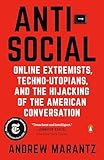
MAY || Antisocial – Andrew Marantz
Is it all Russia’s fault? Probably not. That’s one thing Marantz’s brilliant book on the so-called alt-right makes clear. There was (and is) more disinformational noise being generated by our fellow American citizens than all the purveyors of “active measures” in the land of Putin. It’s hard to fathom that we’ve allowed this vandalism of our collective standards of truth. And Marantz makes it clear the platforms themselves, the very way they’re built, is a large part of the problem. Like Anna Weiner suggests, the story isn’t one about people, but a system. And Marantz’s portraits of these attention-seeking trolls at the heart of our new information regime demonstrates just how much each of them is a creation of the algorithmic incentive: What role must I play to keep them all scrolling?

JUNE || Home Fire – Kamila Shamsie
Dwight Garner is right. I can’t recall an ending to a novel quite as startling or memorable as Shamsie’s here. A fleet and devastating novel, which, tight as it is, abounds with vital detail. For years I have thought of an adaptation of some sort of Antigone, and never imagined I would find it so invigorating to read someone else pulling it off so well. Someday, someone will turn this into a movie or series for the ages.
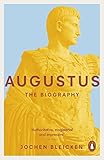
JULY || Augustus – Jochen Bleicken, translated by Anthea Bell
Onto my third biography of Augustus in the last year. The parallels between our own politics and this moment in the history of the Roman empire are too tempting. To me, it’s only becoming clearer that Caesar was the expression of an organic process in the society. The breakdown of the supports to the republic were already advanced. Aristocratic interests (read corporate, today) had so completely subsumed the political order, shaping policy and procedure, that there was increasingly no functional check or balance. The impetus to centralized power emerges here like dogbane in a desert landscape, noxious but inevitable. Caesar’s failure almost demonstrates the point: His murder by defenders of the republic only sets in motion the vying for power already latent in the aristocratic class. Augustus is Caesar 2.0. And it’s his ascent, and ability to parrot the rhetoric of the republic, that leads to a sustainable autocracy. Is there a lesson in all this for us? For me, yes. It has to do with the centrality of military power to all of this. The next attempt here may come as soon as 2024, and if it has even the tacit support of the military, then all bets are off.

AUGUST || Three Rings: A Tale of Exile, Narrative, and Fate – Daniel Mendelsohn
I read Auerbach first more than a decade ago. I learned more about narrative craft in that two week period than any other similar period I can recall. “Mimesis” was a quantum leap into another order of seeing: just how much the illusion of “reality” in a literary work was primarily a matter of grammar. My approach, my internal gauge, my ambition — all of them transformed by the encounter. Mendelsohn’s book is about, among other things, Auerbach in Istanbul, composing his masterpiece without the resources of a library commensurate to the task. It mines the life and life circumstances that led to so monumental an achievement. With its sublime compression and elusiveness, its poetic beauty, Three Rings is an achievement all its own. And perhaps a signal that it’s time to read Auerbach again.
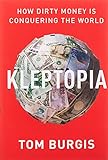
SEPTEMBER || Kleptopia: How Dirty Money is Conquering the World – Tom Burgis
Why does it seem that everywhere the criminals are in power? The question I keep asking myself, and only more so as time goes on. One of the great conundrums of the past few years has been this stock market, and now, I think, I am starting to finally make sense of it. The crumbling of the American-centered world order — by no means initiated (but certainly hastened) by Trump — has meant that cash is now increasingly king. It used to be that West used its abundance to have its way, but with at least a semblance of oversight. You couldn’t just deposit $10 million in a foreign minister’s bank account to get your foreign policy goal taken care of. Now, though, you can. If you have cash, you can play. China, Russia, the class of international billionaires, mostly rich off the despoiling of the populations in one form or other — these are the players on this field. You have enemies? Discredit them with false information. You have interests? Co-opt those who are in your way with various forms of bribery. You need a place to launder your ill-gotten gains? The financial system is increasingly set up to do this very thing for you. The money pouring into equities this year is, of course, the Fed’s tidal wave of cash; but not only. The criminal order is laundering money in the market. Dow 35,000, here we go. Burgis’s book should be required reading for anyone in government. A delusion to think that strengthening the foundations of our democracy will be enough. The structural rot is too advanced. So much of it isn’t even illegal anymore. There’s more money now to be made than ever before for those smart enough to figure out how.
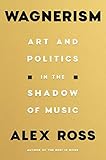
OCTOBER || Wagnerism: Art and Politics in the Shadow of Music – Alex Ross
I cannot escape Wagner. It doesn’t matter how deeply I come to see just how repugnant a person he was. Or dangerous. I cannot listen to the beginning of Rheingold, that cascade of sound in E-Flat Major, or the mesmerizing greatness of Tristan and Tannhauser, or the Falstaffian abundance of Meistersinger — I can’t escape the fact that his music is a richer inspiration than anyone else’s. Reading Alex Ross’s book makes me understand a little bit better why, if for no other reason than that Wagner has had the same effect on so many, of such different backgrounds and persuasions, almost from the moment his mature music found its way into the world. Cather; Herzl; Disney; DuBois. Who has as strong a claim on the deeper current of thought and feeling that has shaped our world than Wagner? Certainly no one has a better one. But even more importantly, at least to me, is the capacity for this music still to transform me. When I can forget the man and meanings, and listen only to the sounds — (which isn’t as often as I wish) — my faith in art is never stronger.
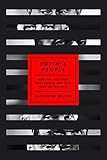
NOVEMBER || Putin’s People – Catherine Belton
What has changed? The country, the world? Or
me? Reading this account of Putin’s beginnings, his rise to power, his
consolidation of power, the money laundering innovations, the successes of his
use of cash to shape the world’s informational ecosystem — it’s clear to me
that we are living in Putin’s world, not America’s. The logic of Trump’s
deference is so obvious now, in retrospect. And while it likely does have a
sinister source, it needn’t. Putin is the architect of the scaffolding holding
up the world now. The Chinese have followed the model, as has money across the
planet. In its quest for a return, the piles of cash have only grown larger.
The pandemic has only strengthened the hand of those with money to make more money.
At what point does our faith in diplomacy and politics as a profession begin to
falter and give way to the dawning reality that the world has truly changed?
Tattered faith in the political class must, in part, be the people’s intuition
that this is the case. Again, the organic coalescing of social forces pushing
us toward a centralizing solution. But what can we possibly do about it when we
can’t even admit how much of it has already happened?
More from A Year in Reading 2020
Do you love Year in Reading and the amazing books and arts content that The Millions produces year round? We are asking readers for support to ensure that The Millions can stay vibrant for years to come. Please click here to learn about several simple ways you can support The Millions now.
Don’t miss: A Year in Reading 2019, 2018, 2017, 2016, 2015, 2014, 2013, 2012, 2011, 2010, 2009, 2008, 2007, 2006, 2005
The post A Year in Reading: Ayad Akhtar appeared first on The Millions.
Source : A Year in Reading: Ayad Akhtar








